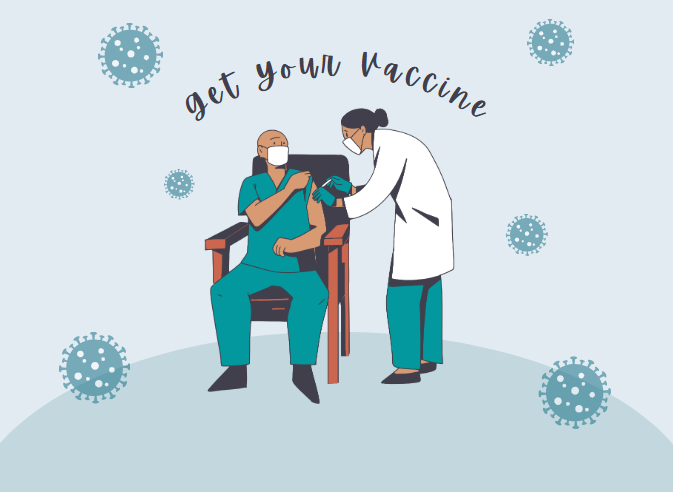
The Importance of Vaccines for Children: What Parents Should Know
As parents, one of the most important decisions you’ll make for your child’s health is ensuring they receive the recommended vaccinations. Vaccines have played a crucial role in preventing serious diseases and saving millions of lives worldwide. Despite the overwhelming evidence supporting the safety and effectiveness of vaccines, there are still many myths and misconceptions that can make parents hesitant. In this blog post, we’ll break down why vaccines are essential for your child’s health and what you need to know to make informed decisions.
1. Vaccines Save Lives: Preventing Serious Illnesses
Vaccines are one of the most effective tools in preventing dangerous diseases that were once common in childhood. Diseases like measles, polio, diphtheria, and whooping cough can have severe consequences, including hospitalization, long-term health complications, and even death. Here’s how vaccines protect your child:
- Immunity Without the Illness: Vaccines help the body develop immunity to a disease without causing the actual illness. By receiving a vaccine, your child’s immune system is trained to recognize and fight off the disease if they encounter it later in life.
- Eradicating Deadly Diseases: Many vaccines have successfully eradicated or nearly eradicated diseases that once caused widespread harm. For example, polio has been wiped out in most parts of the world, and smallpox is no longer a threat, thanks to vaccination programs.
2. Herd Immunity: Protecting the Vulnerable
Vaccines don’t just protect the individual receiving the shot—they also protect the community. This is called herd immunity, and it’s an essential part of public health. When a large percentage of the population is vaccinated, it helps prevent the spread of disease, even to those who cannot be vaccinated themselves, such as:
- Infants too young for certain vaccines: Some vaccines, like the MMR (measles, mumps, rubella), are not given until children are older. Herd immunity protects babies who are too young to be vaccinated.
- Children with compromised immune systems: Some children with chronic health conditions or weakened immune systems cannot receive certain vaccines. They rely on others in the community to be vaccinated to prevent outbreaks.
- Elderly and vulnerable adults: Older adults and those with compromised immunity are more susceptible to disease. High vaccination rates protect these individuals from potentially deadly infections.
By vaccinating your child, you are helping create a protective shield that keeps vulnerable populations safe.
3. Vaccines Are Safe: Debunking Common Myths
One of the biggest barriers to vaccination is misinformation. Many myths and misconceptions surround vaccines, which can make parents question whether they’re truly safe. Here are a few common vaccine myths and the facts to set the record straight:
- Myth: Vaccines cause autism.
- Fact: Multiple scientific studies have shown no link between vaccines and autism. The original study that made this claim was discredited and retracted due to falsified data. Vaccines are safe and have been rigorously tested.
- Myth: Too many vaccines will overwhelm a child’s immune system.
- Fact: Children’s immune systems are more than capable of handling the vaccines they receive. The number of vaccines given today is carefully planned to protect against many diseases with minimal risk.
- Myth: Natural immunity is better than vaccine-acquired immunity.
- Fact: While natural immunity can provide protection, it often comes at a high cost—suffering from the disease itself. Vaccines provide immunity without the risk of severe illness, hospitalization, or death.
The safety of vaccines is constantly monitored by health authorities like the Centers for Disease Control and Prevention (CDC) and the World Health Organization (WHO). Vaccines undergo years of testing in clinical trials and are only approved when they have proven to be safe and effective.
4. Common Vaccines and What They Protect Against
Vaccines are designed to protect against a range of diseases, many of which can have serious consequences for children. Here’s a brief overview of some essential childhood vaccines and what they protect against:
- MMR (Measles, Mumps, Rubella): Protects against these contagious diseases, which can lead to serious complications like brain swelling, hearing loss, and infertility.
- DTaP (Diphtheria, Tetanus, Pertussis): Protects against diphtheria (a serious throat infection), tetanus (caused by bacteria that enters through cuts), and whooping cough (a severe respiratory disease).
- Polio: Protects against polio, a virus that can cause paralysis and even death.
- Hepatitis B: Protects against a viral infection that affects the liver and can cause chronic disease.
- Varicella (Chickenpox): Protects against chickenpox, which can cause painful rashes, fever, and complications such as pneumonia.
These are just a few examples, and the immunization schedule includes many more vaccines that protect children from dangerous diseases.
